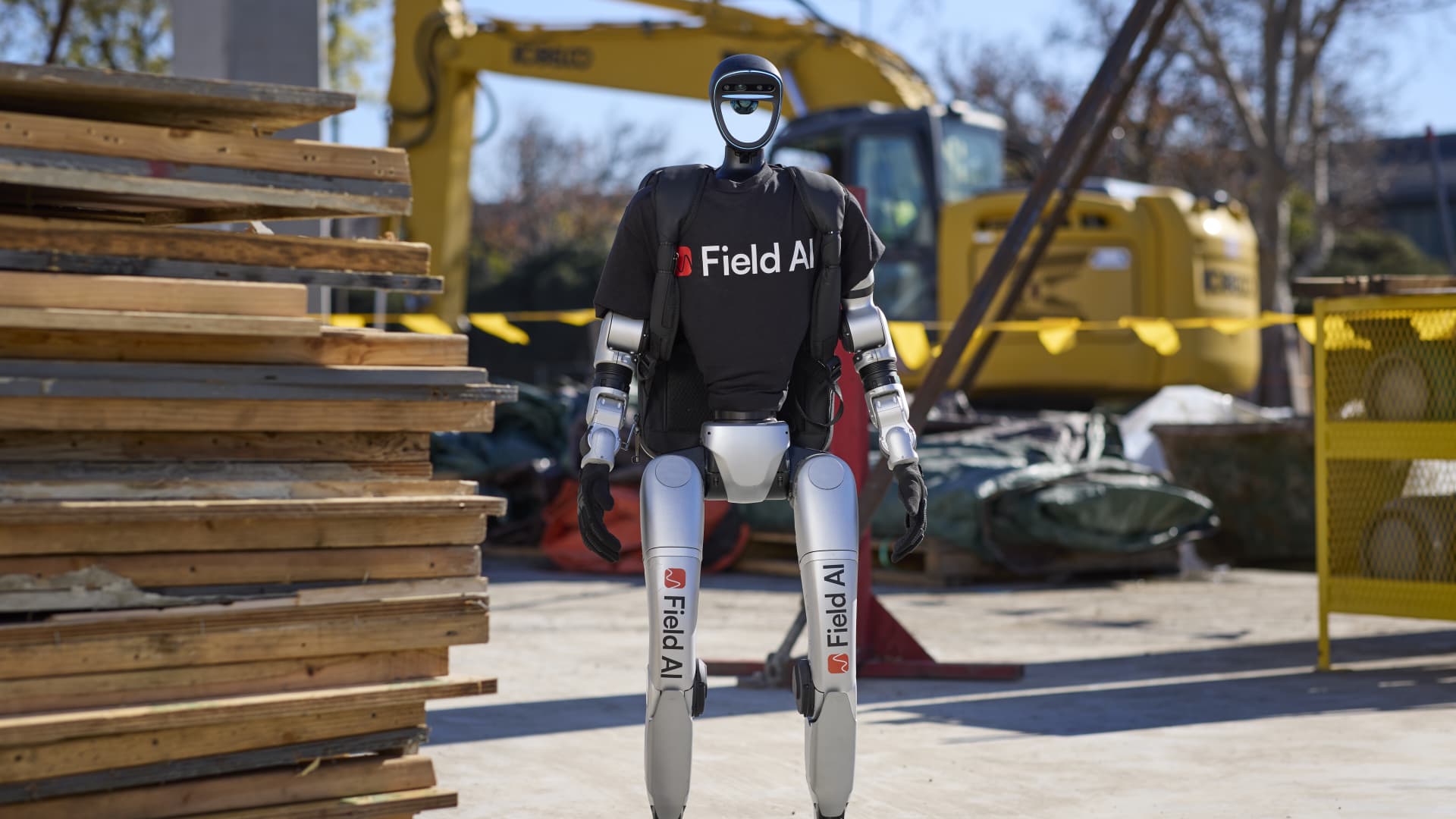The Field AI robotics startup has quickly become one of the most talked about companies in the world of artificial intelligence and automation. In just two years, the startup has reached a staggering $2 billion valuation, thanks to $405 million raised in two funding rounds led by Bill Gates, Nvidia’s venture arm, and Jeff Bezos’ family office.
This massive backing highlights not only investor confidence but also the growing importance of robotics in reshaping industries. Founded only two years ago, the Field AI robotics startup has taken the global tech scene by storm.
Unlike traditional robotics firms that rely on limited automation, Field AI leverages deep learning, adaptive systems, and Nvidia’s GPU power to create intelligent robots capable of functioning in complex environments.
According to insiders, the latest round of funding sets Field AI apart from other robotics startups, making it one of the youngest companies to reach such a valuation milestone in this sector.
Why Robotics Startups Are Surging
The timing of Field AI’s success is no accident. Robotics is undergoing a global boom as industries seek smarter, more efficient solutions to overcome labor shortages, reduce operational costs, and improve scalability.
Artificial intelligence is no longer confined to software applications. It’s becoming the brain of advanced machines. Robots are now being developed to think, adapt, and learn something that lies at the heart of the Field AI robotics startup.
A case study from a U.S based logistics firm shows how AI driven robotics are solving real world problems. Before automation, the company struggled with rising labor costs and inaccurate order fulfillment. After deploying AI robots, operational efficiency rose by 37% and error rates dropped significantly.
This mirrors the kind of transformation the Field AI robotics startup aims to deliver. Their focus on adaptability means their robots can work across warehouses, factories, farms, and even hospitals.
Expert Opinions on Field AI’s Potential
Dr. Laura Chen, an MIT robotics professor, notes. The Field AI robotics startup is unique because it blends cutting edge AI with practical robotics platforms. This approach allows robots to adapt across industries, rather than being restricted to single use applications.
Bill Gates’ backing further highlights the potential healthcare and sustainability applications, while Nvidia’s involvement ensures Field AI has access to the world’s most advanced AI computing infrastructure.
Living With AI Powered Robots
Maria Lopez, a California business owner, shared her story after adopting AI robots in her small warehouse. Initially, my team feared the robots would take jobs. But they’ve actually made work easier. The robots handle repetitive heavy lifting, while my staff now focuses on customer experience and quality control.
Productivity has doubled, and my employees feel less stressed. Stories like Maria’s show why companies are investing in robotics, and why the Field AI robotics startup is being viewed as a transformative player in the sector.
Some may question if $2 billion is justified for such a young startup. However, a closer look at the Field AI robotics startup shows why investors are bullish. The robotics market is expected to exceed $200 billion by 2030.
Bill Gates, Nvidia, and Jeff Bezos’ family office offer more than money they bring unmatched connections and expertise. Field AI’s robots are adaptable, serving multiple industries rather than one niche. With AI models becoming more advanced.
Field AI’s robots benefit from rapid improvements in generative AI, machine learning, and cloud integration. This strategic positioning explains why investors are betting so heavily on the startup.
Challenges Ahead for Robotics Startups
Despite the enthusiasm, challenges remain. Public skepticism about job losses, ethical concerns about AI autonomy, and hardware limitations are hurdles that Field AI must address. However, many analysts argue that, as with past innovations, robotics will create more opportunities than it replaces.
The leadership at the Field AI robotics startup emphasizes augmentation, not replacement a narrative designed to build trust with both workers and businesses.
With $405 million in funding and a strong network of backers, the future looks bright for Field AI. The company is expected to expand into healthcare, logistics, agriculture, and more, redefining how businesses integrate robotics into their operations.
If successful, Field AI could become a household name in robotics, similar to how Tesla revolutionized electric vehicles. The rise of the Field AI robotics startup marks a turning point in the global robotics industry.
Its $2 billion valuation is not just a number it’s a reflection of how the world is preparing for an AI powered future. With the support of Bill Gates, Nvidia, and Jeff Bezos’ family office, Field AI is on track to lead the robotics revolution and transform how humans and machines collaborate in the modern world.

